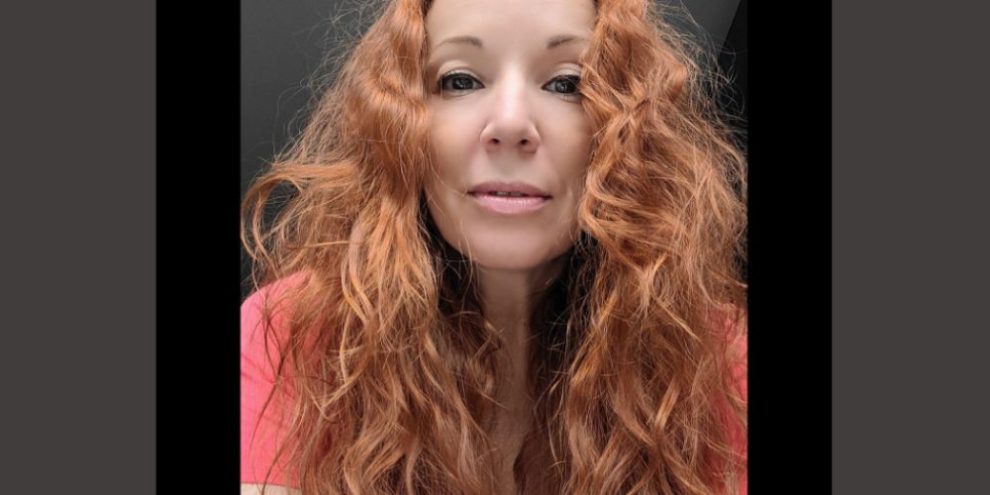
By Fakiha Baig
Shannon McKenney has had a severe migraine for about 1,500 days in a row.
"I have trouble sleeping and I have trouble staying asleep," the musician from Burnaby, B.C., said during a recent phone interview while dealing with the same lingering headache that is often accompanied by dizziness and exhaustion.
“In April of 2011, my appendix ruptured, too, and that was life-changing. I have survived sepsis four times.
"I used to live my life with tons of energy and now I'm like an old cellphone that doesn't quite work right and doesn't charge properly."
McKenney's story is one of several included in a request for a judicial review submitted Monday in Federal Court on behalf of more than 100 health-care professionals across the country, including doctors, psychologists, clinical counsellors, social workers and nurses. They are challenging the federal health minister’s decision last month to reject their application to use restricted psychedelic drugs to train in psilocybin-assisted psychotherapy.
That therapy involves ingesting consciousness-altering substances like psilocybin, an active ingredient in magic mushrooms, in a clinical setting as part of more traditional psychotherapy. Other drugs could include ketamine, LSD or MDMA, the active ingredient in ecstasy.
Health Canada did not immediately provide comment on the request for a judicial review.
The federal government had signalled earlier this year that it would refuse the applications, said Nicholas Pope, a lawyer representing TheraPsil, an advocacy group that operates the training program in which the health-care practitioners are enrolled.
Pope said at the time the only reason cited was that those professionals could access an existing clinical trial instead. Then in June, when the application was officially denied, Ottawa suggested they could run their own trial.
"So in our submissions, we said that's not going to work for a number of reasons," said Pope.
A major one is that existing trials are costly, and they don't work for many of the professionals he's representing because of timing and location.
"You can't just throw together the clinical trial in a few days," Pope said.
"Many patients on waiting lists have suicidal ideation because of their depression and many of them have end-of-life distress, have terminal cancer and could die soon."
McKenney said she tried to participate in an existing trial as a patient but it was too costly for her as well.
"Being on disability, I can't afford $6,000 for three rounds of therapy," she said.
Pope said some professionals also don't want to participate in existing trials because they are meant for research of psilocybin.
"That can interfere with training because the primary goal of a clinical trial is not the training, it's gathering information. And there's no uncertainty in the expert community about safety of psilocybin in healthy adults."
In 2020, Health Canada started granting exemptions under the Controlled Drugs and Substances Actto provide psychedelics treatment to patients suffering from end-of-life psychological distress, treatment-resistant depression and major depressive disorder.
Documents submitted in court show hundreds of Canadians inquire about it every year, but Pope said there aren't enough professionals in Canada to provide the treatment. Some asked for the substances to treat their anxiety, depression, post-traumatic stress disorder or other illnesses.
"In Manitoba, there are no fully trained and qualified health-care practitioners, but there are 10 patients on TheraPsil’s wait-list," said a summary of the application.
"Two Manitoba health-care practitioners requested exemptions. If these two exemptions were approved, patients who otherwise have no qualified health-care practitioners within thousands of kilometres could gain access to psilocybin-assisted psychotherapy."
McKenney said if she wanted to, she could get the drugs from other channels. But she's reluctant because she has a mental illness.
"If I were to do too much or have a bad trip, sometimes there's no coming back from that. If I'm going to do it, I want to regulate it and I want it monitored just for safety's sake."
Pope said in the request for a judicial review that he also wants the federal government to acknowledge patients' rights to life, liberty and security are being infringed upon.
McKenney said if more professionals were trained, and she had easier access to psilocybin-assisted psychotherapy, her life would change.
"I'm 10 years into being relatively disabled. If I can get even a tenth of my former life back, that would be something."
This report by The Canadian Press was first published July 11, 2022.
Feature image - Shannon McKenney, shown in a handout photo, has been having severe migraines consecutively for about 1,500 days. Her story is one of several noted in an application submitted in court on behalf of more than 100 health-care professionals from across the country. They are challenging the federal minister of health’s decision to reject their applications to use restricted psychedelic drugs as part of training in psilocybin-assisted psychotherapy. THE CANADIAN PRESS/HO-Shannon McKenney.






